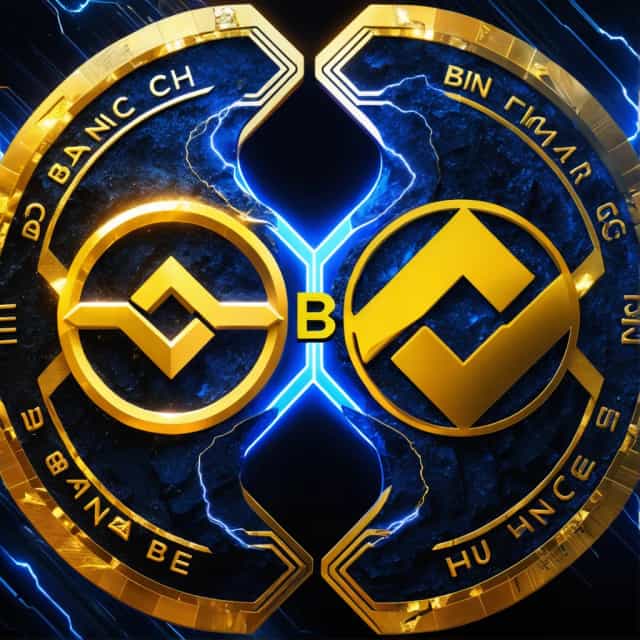
출처: Block Media
Nexperia China Challenges Dutch HQ Control Amid Rising Semiconductor Geopolitical Tensions
Nexperia China, a leading semiconductor company operating within the Chinese market, has publicly rejected management directives from its headquarters in the Netherlands. This unprecedented move comes in response to intervention by the Dutch government, which assumed managerial rights over Nexperia’s parent company. The situation underscores heightened geopolitical tensions surrounding global semiconductor supply chains and underscores the intersection of technology and policy.
Nexperia China Declines Dutch Control: Underlying Motivations
On October 18, Nexperia China issued an official announcement through its WeChat platform, declaring its operational independence and adherence to local Chinese regulations. The statement emphasized, “The company is operated independently and strictly complies with Chinese laws,” and further noted, “Employees have the right to reject orders from external entities that are not authorized by the legal representative within China.” Additionally, Nexperia China clarified that the payment of salaries and bonuses is managed locally and not influenced by its Dutch headquarters.
This defiant stance follows actions taken by the Netherlands government, which, on September 30, forcibly reclaimed control over Nexperia from its parent company, Wingtech Technology, a Chinese entity that previously held a full 100% stake. This move illustrates growing concerns within Western nations regarding technology security and potential intellectual property risks associated with Chinese ownership, particularly in sensitive sectors like semiconductors.
Geopolitical Context: Dutch Intervention Amid Security Concerns
The tension stems from fears of technology leaks, as semiconductors are considered crucial components in defense, advanced electronics, and communications systems. Following the Dutch government’s intervention, China's Ministry of Commerce imposed an export ban on Nexperia’s semiconductors to the Netherlands and its European customers on October 4, adding another layer to the intensifying geopolitical confrontation.
Nexperia’s operations span several critical production hubs, including a major facility in Hamburg, Germany, and another in Dongguan, Guangdong Province, China. Approximately 70% of the semiconductor chips manufactured in the German factory are shipped to Dongguan for further packaging and post-processing. As a result, the export restrictions from China have sent shockwaves through global automotive and electronics industries, triggering concerns about supply chain disruptions.
Ripple Effects on Global Semiconductor Supply Chains
The export ban’s immediate impact is being felt across the European automotive industry, which relies heavily on Nexperia’s semiconductors for vehicle manufacturing. Leading automakers such as Volkswagen and BMW have already started reevaluating their supplier networks to safeguard production, stating, “Currently, there are no production disruptions within Europe, but we are taking steps to strengthen supply chain stability.”
On the other side of the Atlantic, U.S. companies are bracing for potential repercussions. Speculations of delays in semiconductor supply could affect automotive and electronics manufacturers by as early as next month. John Bozzella, President of the Alliance for Automotive Innovation in the U.S., issued a stark warning: “If semiconductor supplies for automotive use are not resumed promptly, there could be cascading impacts on production in the U.S. and other key countries.”
The disruption has raised alarms about the resilience and vulnerability of existing supply chains, prompting global industries to adapt to increasing uncertainties in semiconductor availability.
Diplomatic Strain and Geopolitical Maneuvering
To mitigate the escalating dispute, the Dutch government confirmed on October 17 that it is currently engaged in diplomatic talks with Chinese officials. However, real progress remains elusive as China steadfastly resists foreign intervention in domestic operations. Meanwhile, the U.S. has intensified its sanctions pressure on Chinese tech firms, exacerbating existing tensions.
Analysts argue that the Netherlands’ preemptive action against Wingtech may have been influenced by U.S. policy shifts. The Trump administration placed Wingtech on its Entity List in December of last year, imposing restrictions on exports to the company due to national security concerns. This intervention likely spurred the Netherlands to act swiftly to secure control over Nexperia, aiming to shield its semiconductor sector from broader foreign influence and potential U.S. sanctions.
This multifaceted diplomatic and economic standoff highlights the sensitive nature of semiconductor technology as a strategic resource. The resulting global scramble for semiconductor supply chain security reveals a high-stakes battle between China, the U.S., and Europe as governments and companies address vulnerabilities in this critical industry.
Implications for the Future of the Semiconductor Industry
As the situation unfolds, the ramifications for the semiconductor industry and dependent sectors like automotive and electronics are profound. Businesses worldwide now find themselves navigating a precarious intersection of growing restrictions, protectionist policies, and international political maneuvering.
Global manufacturers, especially in automotive and tech, face mounting pressures to secure reliable semiconductor access and mitigate potential operational risks. For stakeholders across industries, collaboration, diversification, and innovation in semiconductor sourcing have never been more urgent. Amid these uncertainties, the need for global efforts to stabilize semiconductor supply chains has become apparent, though accomplishing this amidst intensifying geopolitical discord remains a formidable challenge.
Semiconductors have undeniably emerged as critical elements in the tug-of-war between major economies, cementing their role as both a technological cornerstone and a tool of global leverage. The conflict between Nexperia China and its Dutch parent company exemplifies the growing geopolitical complexities shaping the future of innovation-driven industries.










